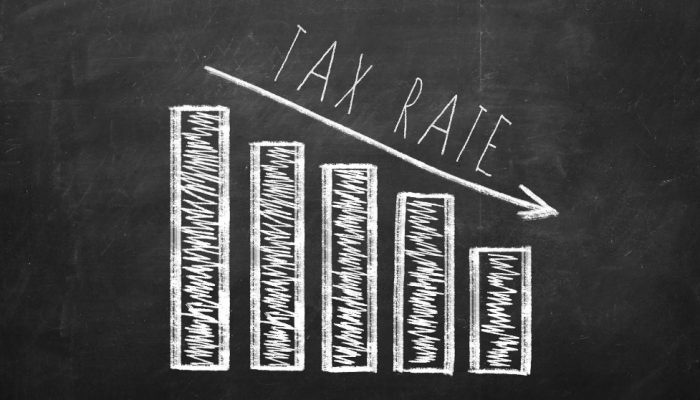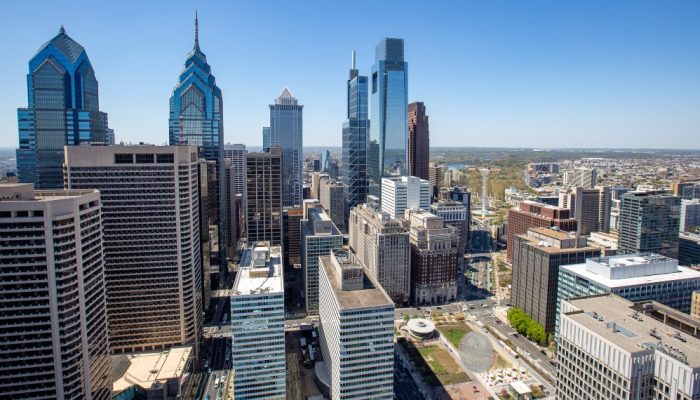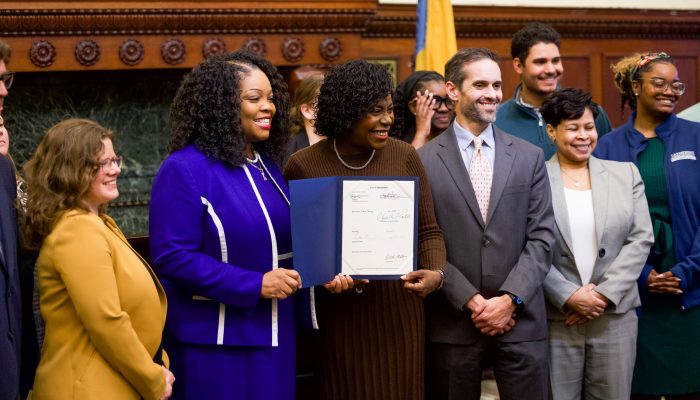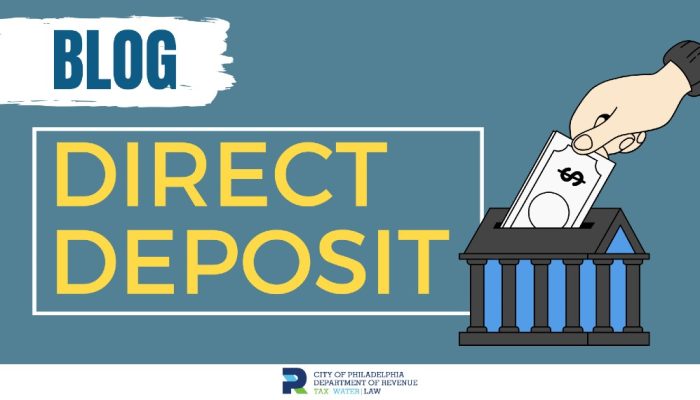On June 12, Philadelphia City Council approved a budget for Fiscal Year 2026 (FY26) that aims to provide relief to residents and businesses. The rates on business income and receipts, and Wage Tax are decreasing in FY26, with further reductions through FY30. The new budget also extends the deadline for a major property tax relief program:
Tax cuts
-
Wage and Earnings taxes
Effective July 1, 2025, Wage and Earnings Tax rate will be:
- 3.74% for residents, and
- 3.43% for non-residents.
Previously, residents paid 3.75% and non-residents paid 3.44%. Any paycheck that is issued with a pay date after June 30, 2025, must have the City of Philadelphia Wage Tax withheld at the new rates for residents and nonresidents. Over time, the Wage Tax rates will drop to 3.70% for residents and 3.39% for non-residents. Sign up for our newsletter to get updates every year.
Salaries, wages, commissions, and other employee compensation are subject to both taxes. Your employer withholds and remits the Wage Tax to the City on your behalf. Otherwise, you must file and pay the Earnings Tax if your employer doesn’t pay the Wage Tax for you. It’s easiest to file and pay through the Philadelphia Tax Center.
-
Net Profits and School Income taxes
The Net Profits Tax (NPT) and School Income Tax (SIT) rates are also dropping. For 2025, NPT rates are 3.74% for residents and 3.43% for non-residents. The resident rate used to be 3.75%, the non-resident rate was 3.44%. The NPT is a tax paid by unincorporated entities on their net profits earned from trades, businesses, professions, and other for-profit activities in Philadelphia. Net profits earned in 2025 will be taxed at the new rate in 2026.
The new SIT rate for residents is 3.74%. It was previously 3.75%. SIT applies to dividends, royalties, short-term rental income from a duplex or triplex the owner lives in, cash lottery winnings from the Pennsylvania Lottery, and some types of interest. The new rate will apply to unearned income received in 2025.

-
Business Income and Receipts Tax (BIRT)
For Tax Year 2025, the net income portion of the Business Income and Receipts Tax (BIRT) will drop to 5.71% from 5.81%. The gross receipts rate will drop from 1.415 mills to 1.410 mills. The gross receipts rate will gradually decrease each year until it’s eliminated in 2038. Over the past decade, the net income tax rate has steadily decreased, going from 6.41% in Tax Year 2015 to 5.71% in Tax Year 2025.
The BIRT applies to gross receipts and taxable net income for business activities conducted in Philadelphia. The new BIRT rates become effective for Tax Year 2025 for returns due and taxes owed in 2026.
-
Exemptions are expiring
Due to a legal challenge, the $100,000 BIRT exemption will not be available in Tax Year 2025 and thereafter. All businesses will have to file and pay the BIRT for business activities conducted in Philly in 2025. Similarly, the $2,000 Use & Occupancy Tax (U&O) exemption will also end effective January 1, 2026.
Get support
Tax changes can be tough, but we’re here to help. It’s also a good time to start planning for what’s coming – talk to a tax professional who’s familiar with local tax rules.
You can check out the Mayor’s Business Action Team (MBAT). They help entrepreneurs and small businesses navigate all aspects of doing business in Philadelphia. Services are available in multiple languages. You can get one-on-one help by emailing business@phila.gov or calling (215) 683-2100.
Also keep an eye out for announcements from the Philadelphia Department of Commerce, as they will be introducing grant and investment opportunities, as well as direct help for small businesses.
Get the latest updates
Sign up for Revenue’s dedicated newsletter for FY26 changes to stay informed—we’ll share information about how to take advantage of upcoming webinars, workshops, and other resources to help you plan ahead as a business. These resources include how to apply for Department of Commerce programs.
Low-Income Tax Freeze deadline extended to September 30
City Council also passed legislation that gives Philly homeowners until September 30 to sign up for the Low-Income Tax Freeze program. From now on, this is the official deadline—the same deadline as the Senior Citizen Tax Freeze. January 31 was the original deadline. The extension gives homeowners enough time to apply. It also allows the Department of Revenue to expand its outreach and awareness efforts.
The Low-Income Tax Freeze program was created in 2024 to make property taxes more affordable for qualifying Philly homeowners. Not a homeowner yourself? Tell your neighbors or relatives about this important deadline extension!
Realty Transfer Tax
The new legislation ends the scheduled phased reduction of the Realty Transfer Tax. As of July 1, the City portion of the tax rate will be 3.578% (it’s currently 3.278%). The Commonwealth portion of the tax rate stays the same (1%).
As a result, the new Realty Transfer Tax rate is 4.578% starting July 1.
[3.578% (City) + 1% (Commonwealth) = 4.578% (total)].




